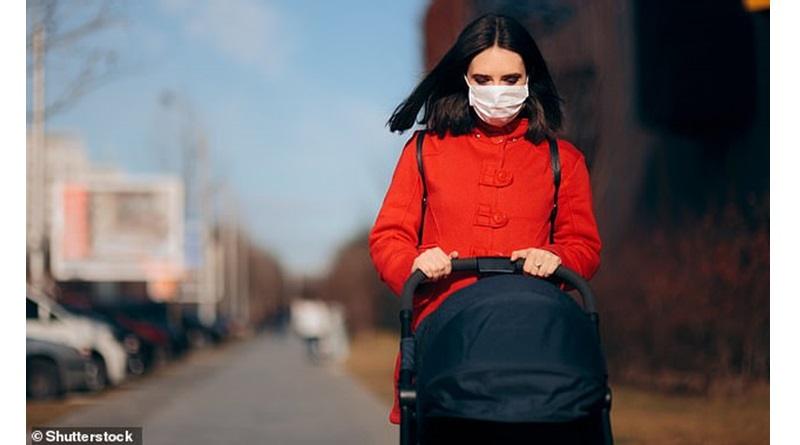
we may earn an affiliate commission. Learn more.
Parents who use popular low-riding pushchairs such as the Bugaboo Bee and Babyzen Yoyo could be exposing their babies to alarming levels of air pollution, as per a new study conducted by the University of Surrey.
- The study measured levels of particulate matter directed at babies and parents
- Researchers claim that babies in pushchairs breathe in 44 percent more pollutants (compared to their parents)
- Bottom level of double buggies are subjected to 72 percent more pollutants than the top level
- Much of this pollution in traffic-heavy areas is rubber from car tires
The study was conducted by experts from Surrey’s Global Centre for Clean Air Research (GCARE), and the paper was published by Environment International.
The The GCARE team looked at three different pushchair types – single pushchairs facing the road, single pushchair facing the adult and double pushchairs facing the road – and assessed the difference in concentration of pollutants compared to those experienced by adults.
The team found that on average, regardless of the type of pushchair, babies could be breathing 44 percent more harmful pollutants than their parents. The GCARE team also found that a child at the bottom of a double pushchair faced up to 72 percent higher exposure to pollutants than a child on the top seat.
In general, young children are among the most sensitive and vulnerable to air pollution due to their higher breathing rates compared to that of adults, said the researchers.
As per the study, using a pushchair cover and increasing the buggy height shields children from an appreciable amount of pollution under certain conditions.
Strap Air Monitor Sensor to Stroller and Help Fight Pollution
As part of Environment Hamilton’s new Inhale project that gathers street level pollution data, several parents are volunteering to attach air quality monitors to their baby’s strollers and head out for a walk. The new project maps particulate matter in a way that stationary air monitoring systems can’t.
Organizers are hoping that this data – coupled with a similar bicycle air quality monitoring project that was launched last year – will help inform the public and drive policy decisions when it comes to health and the environment.
It’s a relatively simple system. A person walks (or rides) with a device that measures particulate matter in the air, alongside a GPS. That data is then uploaded to an online heat map where people can click specific areas and see what averages are alongside specific counts for specific times.
In some cases, air quality is actually better than expected. In others at specific times, it’s worse.
Any limitations to the project Inhale? INHALE is so far limited to certain neighborhoods, however another pioneering project called Bicycle Air Monitoring covers an even wider area by strapping air quality sensors to the bikes of volunteers.
INHALE also only measures particulate matter – which is linked to cardiovascular and respiratory disease, asthma attacks and acute bronchitis – but misses other important air quality measures. That’s because of limitations with available and affordable technology.
But measuring particulate matter in the city is no less important.
The biggest limitation the project faces is that it can’t be scientifically verified in the way that an official air monitoring station can be, as it isn’t pulling data at regular intervals.
Environment Hamilton is up front about though, and has a disclaimer on the website that the data is intended for “educational purposes only.”
But even with those limitations, these tools can be useful to educate people about air quality in their neighbourhoods, Lukasik says – as well as help drive policy decisions at the city level.
As more volunteers contribute to the system, the data grows stronger and could be used to identify areas of the city that might benefit from increased tree planting or to help with the argument for two-way street conversions.
Via: CBC
StrollerBoards is a family managed website with me (Ben) and my wife doing most of the work. We are proud parents of two wonderful kids and love reviewing baby travel gear. We have a firm but friendly “democratic parenting” style and offer several practical solutions backed by extensive research. Our own experience with raising two children prompted us to share our knowledge. Read more.
Leave a Reply